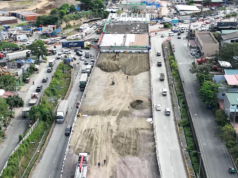MALOLOS CITY—If print media is to survive in the digital age, it must invest in the future and protect its most valuable asset.
This was the unsolicited advice given by speakers in the two-day Philippine Press Institute National Press Forum (PPI-NPF) held at New World Hotel in Makati City with the theme “Watching the watchdog: Re-examining ourselves.”
“Your corporate social responsibility (CSR) efforts must be strategically aligned to your core business so every resource spent goes back to help you in the long run, or at the very least maintain your social license to operate,” said Wally Panganiban, corporate affairs manager of Mead Johnson Nutrition Philippines.
To do this, he said, media should break out of its shell and engage stakeholders. This means constantly building and expanding its network to individuals and groups including those outside the industry.
“When we talk about building relationships, we talk about keeping the media visible, relevant, current, valuable, material, accessible, responsible and accountable to as many individuals and groups as possible,” Panganiban said.
He added, “I think that as a stakeholder of the community and of the many issues affecting it, media should also get involved especially in issues and discussions that affect it, in so doing, the watchdog of society sustains its relationships with all community stakeholders and further strengthens its social license to operate.”
Panganiban also shared important points for media sustainability.
These include knowing what you want and work for it, planning for the future while thinking about succession, growing the name of newspaper or brand name and keep it relevant, get everybody involved and work together, and work with other industry stakeholders.
Panganiban explained that a newspaper’s most valuable assest is not its state of the art printing machines or multi-awarded journalists or money. “Your most valuable asset is your credibility. So protect it, defend it, and whenever possible promote it,” he said.
He advised industry leaders to “take the time to know about the technology that’s emerging and how it can be harnessed to grow your business.”
He added that industry leaders must “understand the future by reading the signs today” and stressed, “research is not only about finding the facts about a story.”
For her part, Rappler.com’s editor-at-large Marites Vitug shared personal story of shifting from print to cyberspace which was highlighted by “jarring adjustments, sometimes intimidating change, survival with an element of culture shock and realization that the next generation is taking over.
“As we baby boomers or mid-lifers know, today’s daily multi-media journalism in the Internet is for the young. It demands a lot of energy and agility. It’s tough to admit: we’re growing old,” she said.
Vitug’s story began in 2007 when Newsbreak, the bi-monthly hard-copy magazine she was editing folded up because it was not sustainable.
She said that they decided to move online which took out the huge printing and distribution costs. However, they did not get enough advertising, so, they partnered with ABS_CBN to run its website.
Vitug described her early days as editor of the abs-cbn.com felling like a “zombie.”
She said she went through a culture shock noting that she was “unprepared for the speed of work, the pace at which we had to feed the hungry beast that is cyberspace.”
She added, “the job was 24/7. Wherever I was, I was connected, always checking the website for news we missed or got first as well as grammatical errors.
I could hardly leave the newsroom to meet up with sources or attend newsworthy events. I was glued to my desk and computer. If not, I was in endless meetings with management and marketing.”
In the end, Vitug offered a challenge to her colleagues in the print medium.
“Today, newspapers have a tougher job to do. They need to go a step further, beyond breaking news and spot reports to news analysis and in-depth stories. The Internet already tells us the news by the minute, by the hour.
The newspapers will do a great service to the public by explaining what this all means and make sense of the events,” she said.
Vitug added, “some say that the Internet encourages “churnalism”—because the news websites are under pressure to churn out news, like an assembly line of sausages. They miss out on the news gathering.
Online multi-media reporters tweet, interview news sources with a camera, write breaking news, and update it with video. There is no time to really gather the news, to talk to people and reflect on the story.
Newspaper reporters and editors have the luxury of time—compared to the Web—and do thoughtful, real journalism.”




